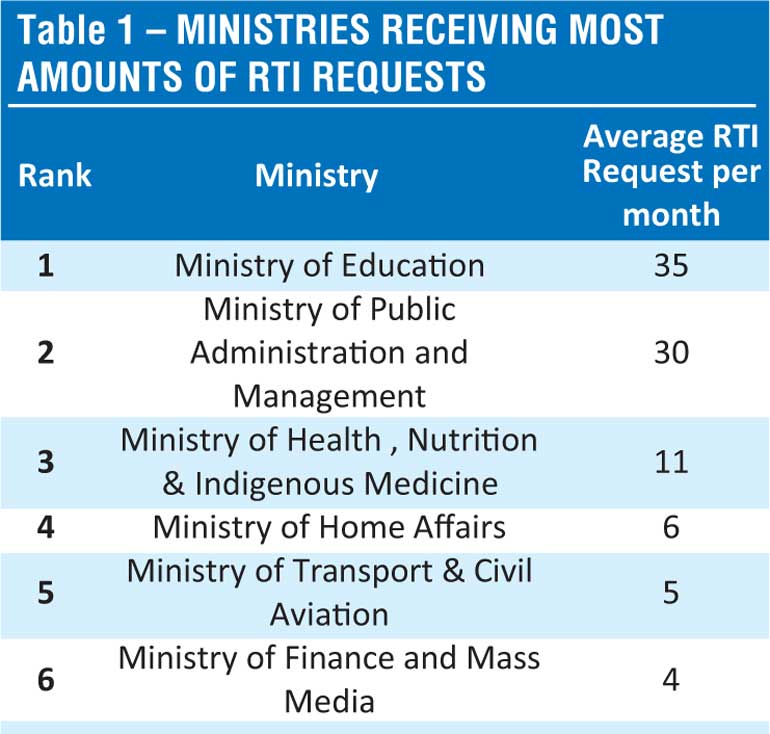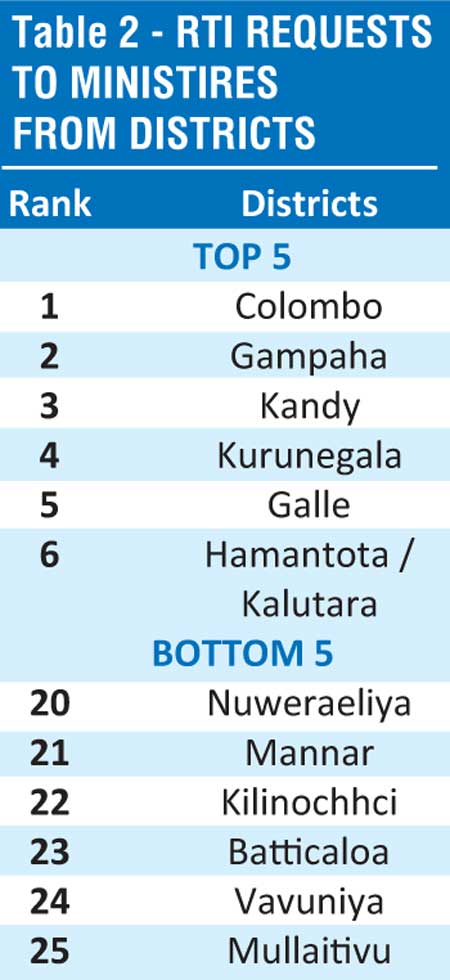Tuesday Feb 17, 2026
Tuesday Feb 17, 2026
Friday, 9 February 2018 00:00 - - {{hitsCtrl.values.hits}}

 The 3rd of February marked the first year of the implementation of the Right to Information (RTI) law in Sri Lanka. The law enables citizens of Sri Lanka to access information from public authorities for their own requirements as well as in the public interest.
The 3rd of February marked the first year of the implementation of the Right to Information (RTI) law in Sri Lanka. The law enables citizens of Sri Lanka to access information from public authorities for their own requirements as well as in the public interest.
The Sri Lanka Press Institute (SLPI) as an advocate of the RTI law in Sri Lanka, initiated a process to gather data from the main ministries to ascertain the progress made in the past year. Based on the data received from the 22 ministries that responded to the request, it is noted that 88% of the RTI requests received have been responded to or are being processed, while 12% have been rejected. As per the RTI process, if a request is rejected, an appeal can be made to the designated officer in the relevant authority, failing which, an appeal could be made to the RTI Commission. In this regard, the RTI Commission had received 485 appeals as at 26 January, 2018.
The Ministry of Education has received the most number of RTI requests with an average of 35 RTI requests per month. The Ministry of Public Administration and Management received 30 RTI requests per month followed by the Ministry of Health, Nutrition and Indigenous Medicine, Ministry of Home Affairs, Ministry of Transport and Civil Aviation and the Ministry of Finance and Mass Media, which is the nodal ministry for implementation for RTI in Sri Lanka (Ref Table 1).
The highest amount of RTI requests to the ministries have been made from the Colombo, Gampaha, and Kandy Districts, while the least number of requests have been from the Mullaitivu, Vavuniya and Batticaloa Districts (Ref Table 2).
A law such as the RTI brings about fundamental changes to the values and attitudes of people and its successful implementation requires a change in the mindset of public authorities and citizens, a change in the systems of managing and sharing information, and continuous awareness of training of both public officials and the public.
While this data from the main ministries indicates that there is progress, there is still a long way to go. Countries which have implemented RTI law before Sri Lanka are still facing challenges in getting the message across and getting both officials and citizens to use the RTI. The nodal Ministry for RTI Implementation, the RTI Commission, public authorities, media, and civil society organisations have to continue to build awareness and provide support on all fronts for the successful implementation of the RTI. It is important that we do not lose hope but be encouraged by the gradual progress that is being made in Sri Lanka.